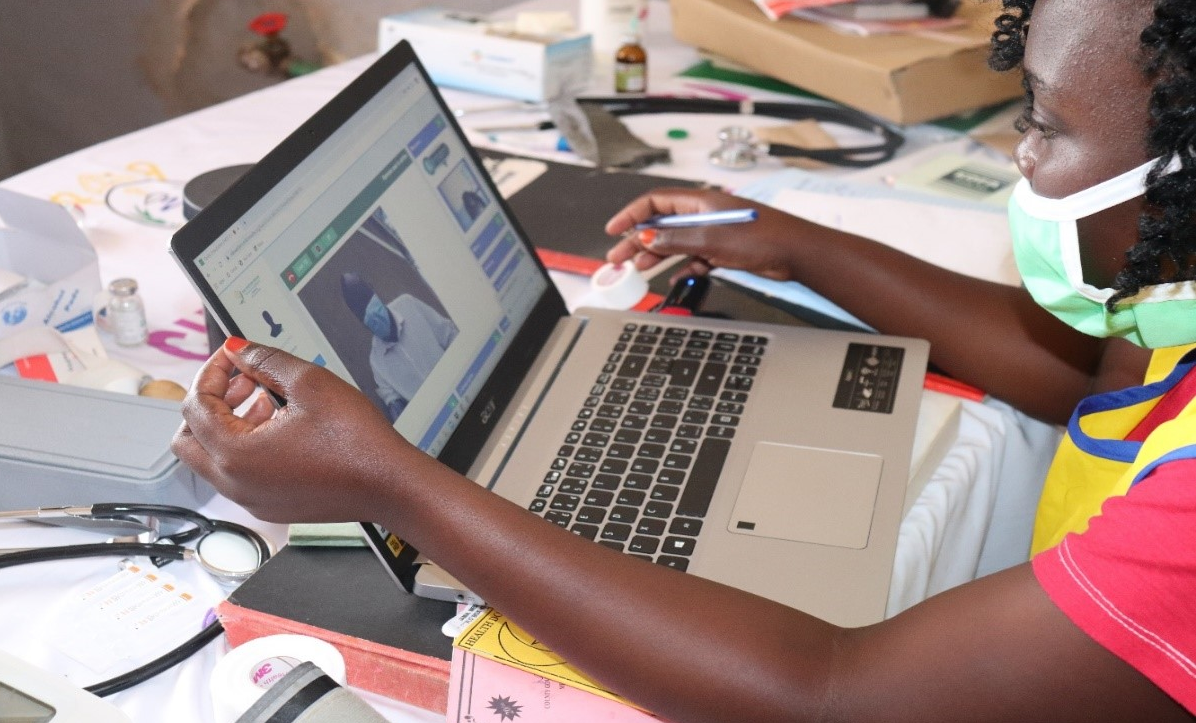Kenya government is set to roll out a telemedicine programme across the country to improve access to healthcare particularly in the remote and marginalised regions. Already, the government, through the Communication Authority, has set aside Ksh600 million to fund the laying out of the foundation for telemedicine in 20 health facilities.
See >> Youth Who Developed Healthcare System Named Scientists of The Year
“This is the direction to go so that no part of the country feels left out in provision of quality health services and especially to reduce the cost of seeking health care to the patients,” said Dr Joseph Sitienei, head of the Health Service Management department, Ministry of Health.
Piloting was conducted at the Kenyatta National Hospital and Isiolo Hospital. The highly skilled health care workers’ distribution in Kenya is skewed towards urban areas, leaving the rural areas poorly staffed. It is important to note that with the onset of Covid-19, Kenya Medical Practitioners and Dentists Council (KMPDC) in February 2021, commenced the issuance of provisional approvals for various registered and licensed health institutions to offer virtual medical services. So far, about 20 health facilities have received approvals.
Even though Kenya is yet to enact laws regulating telemedicine, the Council developed e-Health guidelines back in 2019, and shared the same with the relevant government authorities for approval and subsequent gazettement. The rules will offer a base for the full rollout of telemedicine services.
The role of technology is becoming more and more appropriate to address some of the challenges in the healthcare sector. “If we cannot provide enough skilled staff in all our health facilities, we can surely take the skilled staff to the rural areas through telemedicine! It is time that we have teleconsultations and tele referrals,” Dr Joseph Sitienei said.
The government is adapting technology to respond to the challenges in the health sector and improve the quality of care offered to Kenyans so as to meet the aspirations of the Constitution of Kenya, 2010. “The Ministry of Health has taken innovations and technology in the health sector as one step towards improving health care and meeting the needs of Kenyans as we roll out the Universal Health coverage,” the medic further noted.
He further observed: “Complete collection of quality health data is the backbone of planning and evidence-based decision making. This is only possible when we adapt and deploy technology in all service delivery points.”
Read >> Pharmaceutical Firm Outlines Steps To Counter Cancer
Dr Sitienei said the Ministry of Health has developed a Digital Health Platform that will improve efficiency and effectiveness of services offered in health facilities while at the same time improving on accountability. The platform will enable real-time collection of patient data and provide platforms for integration with other critical databases. It is on this platform that telemedicine project is being rolled out.
The counties are being clustered so that they can be provided with remote care by the national referral facilities.
The Kenya National eHealth Strategy 2011 —2017 suggests 80% of clinicians serve only 20% of the population. The inequity in health care infrastructure and access between urban and rural Kenya is striking.
Healthcare is one of the final frontiers that has been less accessible through the use of mobile phones and digital technologies.
This is where the government’s prioritisation of and investment in the ICT sector may reap significant rewards for health. Kenya is a regional leader in terms of broadband connectivity, ICT infrastructure, value-added services, and mobile money or banking.
Quarterly data from the Communications Authority of Kenya shows active mobile SIM card subscriptions standing at 64.4 million as of June 2021, representing 132.2% market penetration. Internet subscriptions reached 46.7 million, 99% of which were mobile data subscriptions.
Millions of Kenyans use their phones multiple times daily to communicate, access financial services, work from home, shop online, study and socialise.
Healthcare is one of the final frontiers that has been less accessible through the use of mobile phones and digital technologies to date, and that has seen a shift since the onset of the Covid-19 pandemic in 2020.
Next >> Money Saving Tips For Kenyan Parents













Leave a comment